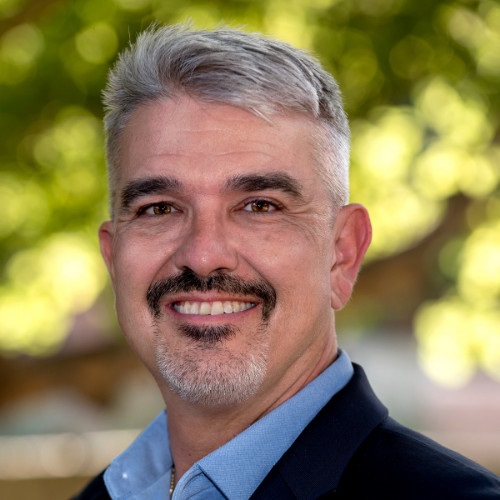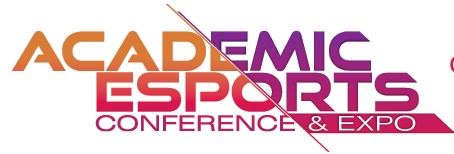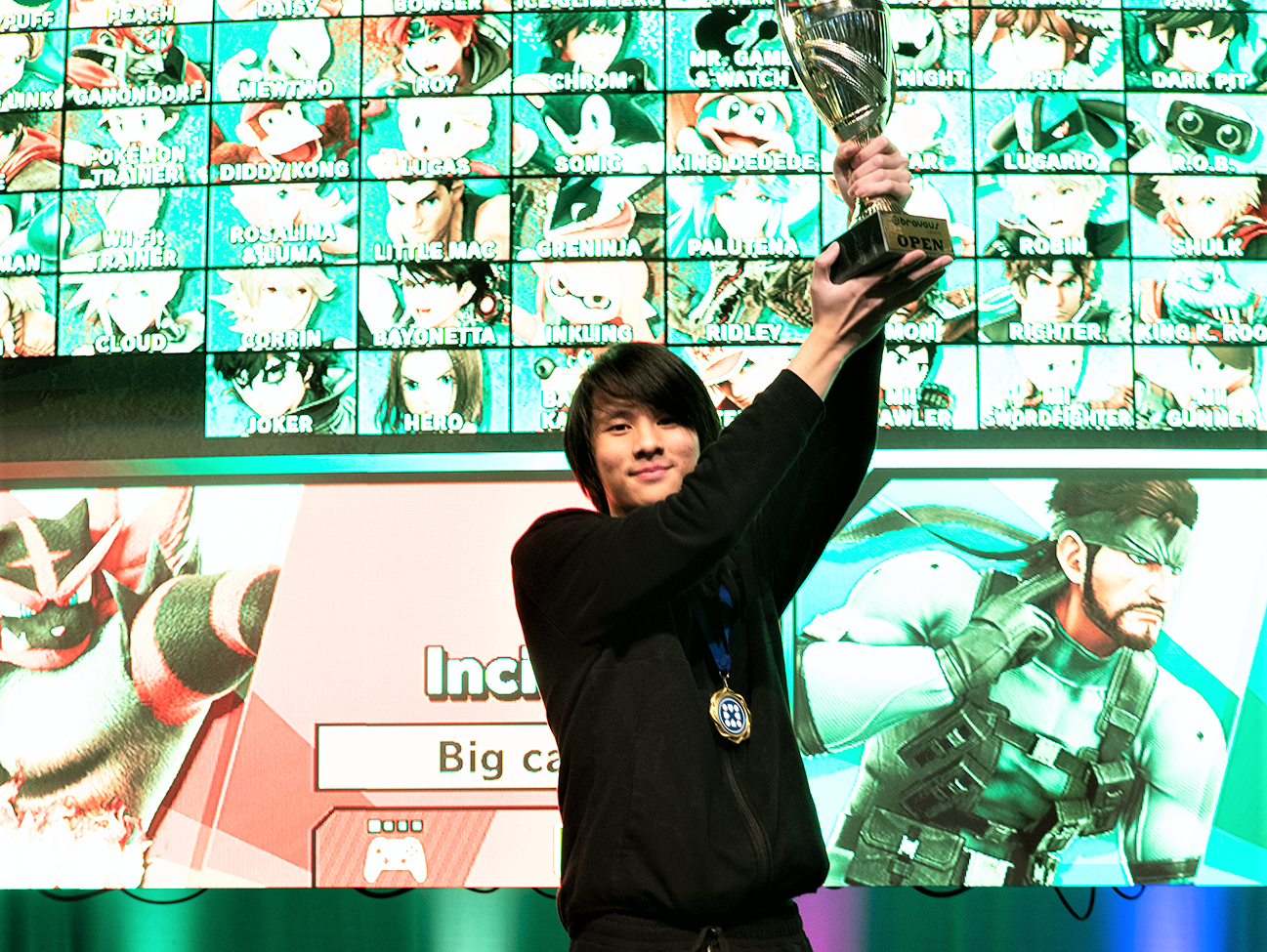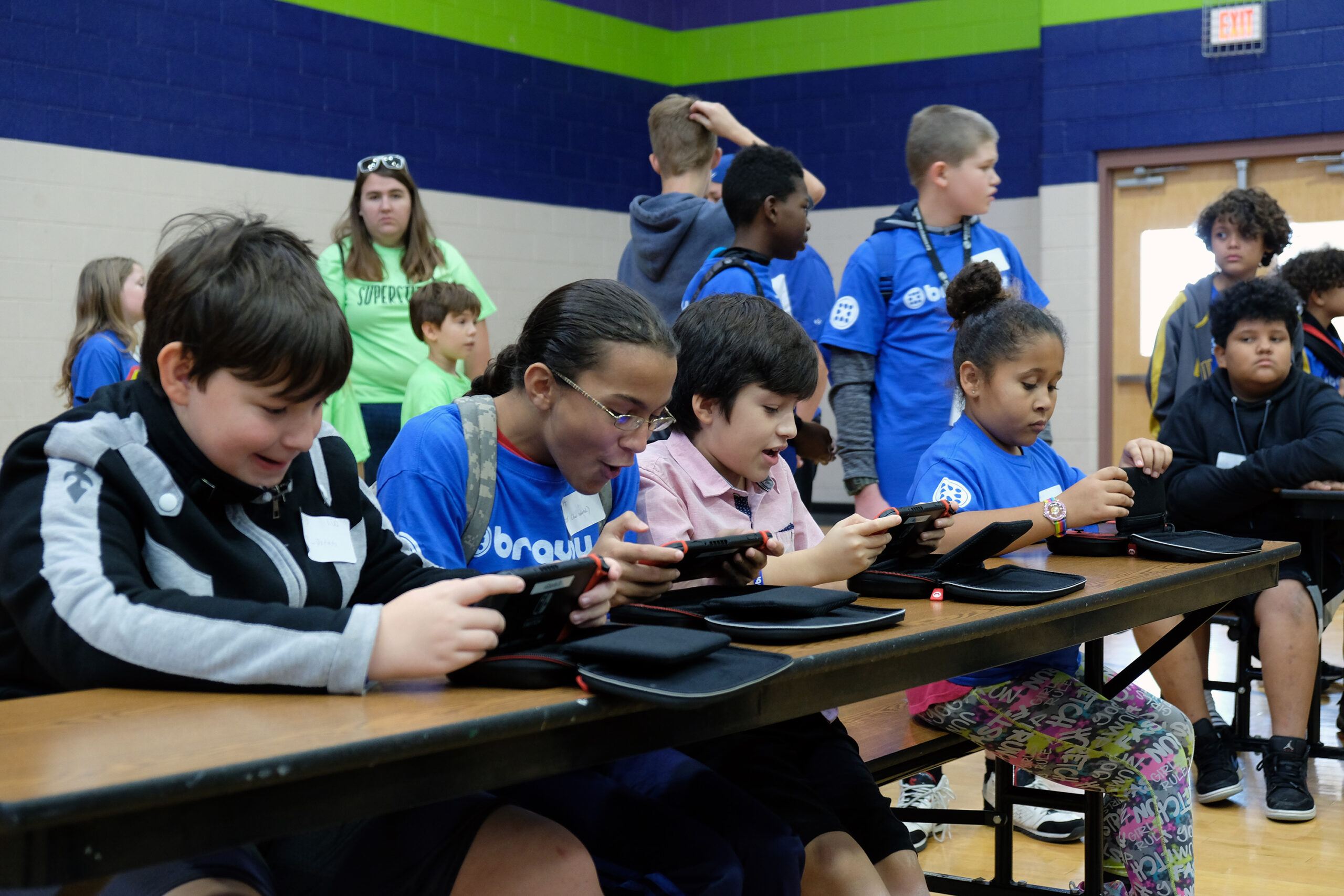“We always want to create an environment or an event where you can make a friend.” – Scott Novis
 Throughout his career, Scott Novis has been a champion for youth. An entrepreneur and pioneer, his trajectory in esports is notable, especially to those who have attended a mobile gaming event or seen one of his titles.
Throughout his career, Scott Novis has been a champion for youth. An entrepreneur and pioneer, his trajectory in esports is notable, especially to those who have attended a mobile gaming event or seen one of his titles.
Novis was a vice president at Disney’s Nintendo Game Development Studio and led a team at Rainbow Studios that produced several hit games, including Motocross Madness 2, Star Wars Racer, Mat Hofman’s ProBMX and Cars. His 15 published titles have sold more than 20 million units and generated $2 billion in revenue.
But one of his most important achievements has been bringing together children and young adults to play, strategize and connect with one another. As CEO and founder of Game Truck, the industry’s first mobile video game theater, and COO and Co-Founder of Bravous Esports, which hosts events for schools, colleges and community organizations, he and his team have helped entertain 10 million students over the past 14 years, both in person and virtually.
“I’m passionate about combating loneliness and isolation,” Novis says. “Games are a proactive way to do something together, make new memories and build relationships. We need to give students a platform to participate and connect. They’re very interested in their gaming space, but it’s a blind spot for a lot of adults and a lot of community organizers.”
In October, at the Academic Esports Conference & Expo, Novis will discuss the important role instructors, coaches, institutions and parents play in keeping children and young adults in the game during his session, “Why Recreational Esports Matters: Creating Programs that Combat Isolation.”
During a wide-ranging interview, Novis offered his thoughts on a variety of topics that affect student gamers: educational opportunities, career development, gender equity, traditional sports vs. esports, and quality parenting and teaching.
“Esports is the greatest tool we have to bring young boys and girls together to learn how to compete with each other and respect each other,” Novis says. “Whatever they do later, at least in this moment, it is a tremendous opportunity to convey some very valuable civics lessons, social lessons, cultural lessons. We can extract a lot from esports that will leave our young people better prepared to go into the workforce.”
Breaking it down
Novis says his session will highlight what he calls the Seven P’s of esports: people, purpose, place, policies, program, progression and play.
Perhaps one other P – pivot – highlights how valuable both esports and Bravous have been for students during a period when almost everything else has been shut down.
Play hasn’t been a problem for Bravous (pronounced Brave-Us, for Bravely Courageous), which hosts recreational youth esports leagues, STEM after-school programs and drop-in competitive events. During the Covid-19 pandemic, it has pivoted from in-person to hold more than 100 Virtual Open tournaments, mainly for colleges and universities.
“When Covid hit, we said we can’t meet in person anymore, but most of what we do still survives,” he says. “We do all sorts of crazy stuff. It’s not just competitive video game tournaments. We’ll do an Animal Crossing event. We just expanded our offering with a trivia thing. The gamers are loving this right now because all of their friends are available at their fingertips. They’ve never felt more connected. Everybody in the country just became an isolated gamer.”
 Sign Up For Esports Newsletter: Get exclusive content and the latest news in our Academic Esports newsletter, which is free to sign up for here.
Sign Up For Esports Newsletter: Get exclusive content and the latest news in our Academic Esports newsletter, which is free to sign up for here.
Full Academic Esports Conference Agenda: Check out all of the speakers and sessions, including Gerald Solomon, Laylah Bulman and the NASEF team, that are slated for the inaugural event here.
Whether it’s in person, virtual or a hybrid of both, Game Truck and Bravous are reaching gamers:
- Game Truck and Bravous have hosted some 250,000 events and gaming parties.
- Schools have seen huge spikes in interests from those who showed no interest in participating in other extracurricular activities. Novis cites a middle school close to his company’s base in Arizona that decided to launch an esports program. They had 140 kids sign up including 130 that had never taken part in any other activity on campus.
- In Bravous’ recent Virtual Opens during the pandemic, three colleges (Georgia Tech, Embry-Riddle and Colorado School of Mines) maxed out attendance. The events have totaled more than 1,500 participants and reached nearly 10,000 viewers, including large universities such as DePaul, Rutgers, UMass and Indiana.
Bravous’ work with schools and with organizations such as the Boys and Girls Clubs, Children’s Center of New York City and Parks and Recreation departments nationwide reaches a group of students who are often forgotten. Novis says many naysayers – those who shrug at the viability of esports – would be wise to embrace the positives that emerge when students are engaged.
“When we say video games are a waste of time, that’s about the worst thing you could tell a kid,” he says. “Because in their mind what they’re doing is attacking a hard problem, developing skills to overcome that problem, and persisting until they succeed. When we’re connecting with our kids, we build a bridge from their game behavior to the real world. And that’s the opportunity most adults miss. These games are staggeringly sophisticated. They do amazing things.”
Scott’s take on
Novis is an engaging conversationalist and speaker who has an unbridled enthusiasm for esports. He uses creative analogies and research-backed comparisons to traditional sports to make striking points about the benefits of gaming. He is a volunteer and an advocate, a positive voice for kids who compete. But he is also acutely aware of anything that might take the joy out of what should be a fun, enriching experience.
Novis delved deeply into a number of topics and debates, debunking myths that can sometimes pervade the esports space while offering a unique perspective on the relevance of gaming:
- How big is esports? “Esports is to sports what Hip Hop was to music. It’s so big you can’t ignore it anymore. 44 million unique viewers watched an Overwatch World Championships last November. The highest watched hockey game of all time was Game 7 of last year’s Stanley Cup Finals: 10.9 million unique viewers. Four times as many people watched something you may never have heard of than the highest rated hockey game of all time.”
- Traditional sports vs. esports: Novis says, “fewer than 4 out of 10 kids even participate in high school sports. I’m not sure what the actual number are that play. Seven out of 10 kids play competitive video games. Their economic future looks way more like esports than it does traditional sports.”
- Winning: “As an esports company, our dirty little secret is, we don’t really care about winners that much. It’s what you do for everybody else. Competition is not about winning. It’s about developing human potential. We’re focused on how to maximize the engagement and experience for the majority of participants.”
- Forcing sports on esports athletes: “We saw this in our early Bravous camps. As soon as we threw a ball, a football, a basketball, a soccer ball out on the field, half the kids dropped out. Because what does a ball do? It instantly enforces a physical hierarchy.”
- Women in esports: “I still don’t think there’s enough women that are playing competitive video games – but the current world champion in Hearthstone is a female, and schools have close to a 50-50 participation rate. There are also more professional female video gamers than any other professional co-ed athlete of any kind.” Taking a knock at the lack of women in major sports leagues, Novis says. “Sorry, one or two field-goal kickers is not enough.”
- Food for thought video games: “We have this cognitive dissonance around video games and kids. Grab the terms and conditions for every single video game platform: YouTube, Discord, Twitch, Microsoft, Sony all of them say no one under 13 years old should be playing online. How many 8-year-olds play Fortnite? How many 7- or 8-year-olds are playing Minecraft?”
The future of esports
Novis believes esports is particularly vital in the collegiate space, where kids might be lonely or not participating in anything on campus.
“Young adults are in as big a need or deeper need than the younger kids,” he says. “Esports is a way to reach an audience that isn’t resonating with traditional campus activities. The data says engaged students graduate. Disengaged students flame out.”
That’s true both in higher education all the way down to K-12 and the community level. Because of the power of esports to connect with a wide swath of participants across demographics, it can be empowering for students.
“It doesn’t matter what you look like. Gender doesn’t matter. Race, background, none of that matters,” Novis says. “Your ability to contribute to our goals is what matters most. Personal competence and challenge, those strongly align with the modern economy. Those skills become transferable if you put them in the right format.”
Novis and Bravous are doing that by being supportive, encouraging and giving students the freedom to succeed.
“Students do not want to passively consume content created by other people,” Novis says. “They want to participate in the creation of content and events. For us, we want to bring that game experience into a safe environment with adults that are professionals, that care about helping grow a healthy, well-adjusted kid ready for the future.”
To find out more about the events and programs that Bravous offers, including professional development, charity stream-a-thons and certifications, go to Bravous.com.
Chris Burt is the Esports Editor for University Business and is the Program Chair for the Academic Esports Conference & Expo. He can be reached at [email protected] or via Twitter at @esportsChair





